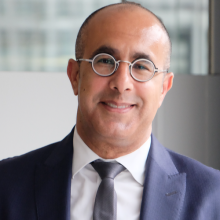
Dialogue 1: Housing our future
What needs to change to solve housing inadequacy for billions across our cities and communities?
Summary
Housing is much more than four walls and a roof; dignified and adequate housing is a necessary condition for a just and inclusive society. And yet, families and communities across the world lack access to this.
This session will unfold as an exploration of the meaning of adequate housing, the barriers to access and the solutions that have proven successful at remedying this problem. Participants will explore how housing issues impact communities’ health, dignity, safety and well-being. They will also dissect the sort of localized solutions that are available at different scales, and the strategies and collaboration that underpin them.
Attendees will listen to and participate in a dialogue where international experts, national practitioners, activists and influential thinkers analyse this complex issue and discuss cutting-edge solutions, revealing how housing is at the core of a “renewed social contract.” The session will engage listeners by illustrating the urgent need to advocate for diverse models of housing production, exploring the varied relevance of facilitating housing strategies, public housing initiatives, public-private partnerships, community scale projects, and more.
This session will delve into key dynamics behind the housing crisis, including the commodification of housing and cities’ over-reliance on a narrow range of solutions, leading to soaring housing costs, and structural weakness, all of which are being exacerbated by the climate crisis.
It will be a memorable dialogue as it will explore how housing provision can be improved while prioritising inclusivity and diversity of strategies without limiting investment options. These solutions are underpinned by collaboration across sectors, requiring government stewardship, collaborative governance structures, evidence-based decisions, equitable financing, accountability frameworks and the cooperation of diverse actors.
Guiding questions
- Which innovations, policy reforms, structural interventions or other measures have effectively mitigated housing inadequacies, inequality and extreme poverty, offering models for global replication?
- How can public, collective and private strategies be most effectively combined to deliver adequate housing for all?
- What policies and mechanisms ensure that the most vulnerable and marginalised are prioritised in terms of access to housing, and how can this lead to a renewed social contract, based on human rights, inclusivity and justice?
- Based on your field of expertise, how have issues around housing exacerbated inequality and how can housing solutions serve to mitigate socio-economic and spatial disparities?
- How are issues of housing affected by the climate crisis and what successful examples exist of innovations in housing taking climate change into account?
Key objectives
Participants will gain insights into the barriers to dignified and adequate housing and into diverse housing production. They will learn about the key components of localized solutions, including partnerships for effective and just housing provision, and how to ensure expanded housing provision that is inclusive and sustainable.
Key messages
- Worldwide, up to 2.8 billion people struggle with inadequate housing, of which nearly 1.1 billion reside in slums and informal settlements, and 318 million are homeless. (#ItAllStartsNow)
- Housing is a right, not a commodity. Addressing inadequate housing is vital for strengthening social trust and justice. (#ItAllStartsTogether)
- The housing crisis is complex and diverse, thus it requires locally based inclusive solutions. (#ItAllStartsLocally)











 Streaming on UN WEB TV
Streaming on UN WEB TV